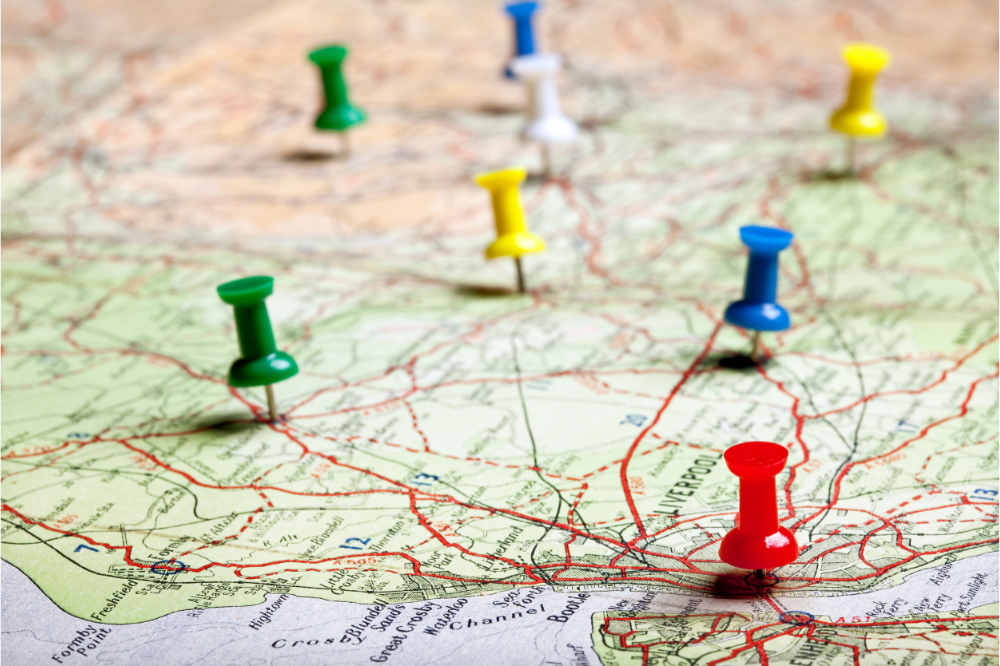The metaverse is coming and it’s up to marketers to bring its value to hospitality venues everywhere. With some of the biggest finance players already taking notice, the metaverse cannot be considered a concept anymore – it’s an emerging tech platform with massive potential and marketers will need to leverage it if they want to excel in the digital experience space.
Physical, Digital, Meta
Metaverses are virtual worlds that connect the real world to the virtual one and allow a user to experience the best of both at the same time. The metaverse isn’t just a virtual environment, and because of decentralisation it won’t be a space controlled by big brands – there’ll be room for everyone.
For venues, this could be interaction using Augmented Reality (AR) on a mobile device: enabling visitors to see bonus videos about characters at a theme park. Similarly, in a dining setting, a potential visitor could use Virtual Reality (VR) to check out the layout of a restaurant before booking a table.
In the coming years, in line with how the tech advances, there will no doubt be increased pressure on hospitality brands to tailor their experiences to individual customer needs. As it becomes more and more possible to react to an individual’s behaviour in real time, in order to maintain a competitive edge, brands will also need to transform data from a user’s interaction with digital worlds into actionable intelligence.
As customer behaviour can be observed as it happens, brands of all kinds have enhanced insight into what they’re buying and doing; as well as where they are and what device they’re using. This will then be used to create personalised content – alongside offers, incentives, and the like – that can delivered, not just in real-time, but at the right time.

Fine Art
Consider a recent event that’s currently touring – Exhibition Hub is currently running Van Gogh: The Immersive Experience across 20 cities aiming to deliver Van Gogh and his art to audiences through a range of different mediums. Included in this, is a VR world that users can travel through to experience the world that the artist lived in and inspired his works.
Now, what if Exhibition Hub was able to measure the amount of time that individual VR users looked at a particular piece of art? How could they use that data to drive increased value? And we’re not just talking impulse purchases – such as gift shop souvenirs souvenir coffee table lookbooks.
What if the experience could be repeated, and refreshed each time, for each user – giving them more content to interact with, at this, and future events? What if the organiser saw an opportunity to encourage visitors to purchase a set of NFTs – created to drive ownership of digital assets based on the exhibition?
It might sound a little far-fetched, but in anticipating how we might use the metaverse in more tangible ways – across a variety of industries – it’s clear that brands need to find ways to create meaningful experiences in the digital realm too; and offer something not only exclusive, but relevant, valuable, and personalised.
In the hospitality industry, the latter is of particular importance. Why? Because value itself is contingent on individual preferences. The more we know about the customer, the more specific the experience – be it digital, physical, or mixed one – can be made. This in turn adds more value to the customer experience and boosts their brand in the eyes of the user.
Luckily, the amount of individual data being generated by Extended Reality (XR) hardware – such as wearable devices – continues to proliferate. Each year greater processing power comes in smaller packages, so things like smartwatches are going to become devices capable of handling more of our needs.
A wearable device has a physical connection to its owner that goes beyond the connection we all have with smartphones. Having that kind of direct access to individuals puts marketers in a powerful position. However, because of this, we must treat access to data of this ilk as a privilege that needs given respect. Even simple notifications based on location can be intrusive – if not built with the user in mind.
It’s clear that hospitality venues have the opportunity to use the metaverse alongside VR, AR, and XR to create dynamic marketing campaigns that use real-time data to create unique, personalised experiences. This type of micro-segmentation will undoubtedly help make customers feel understood leading to boosted loyalty, retention, and revenue.
Want to know more about engaging hospitality audiences with emerging tech? Check out our latest report, The Price of Admission: Why the hospitality sector must focus on personalisation.




